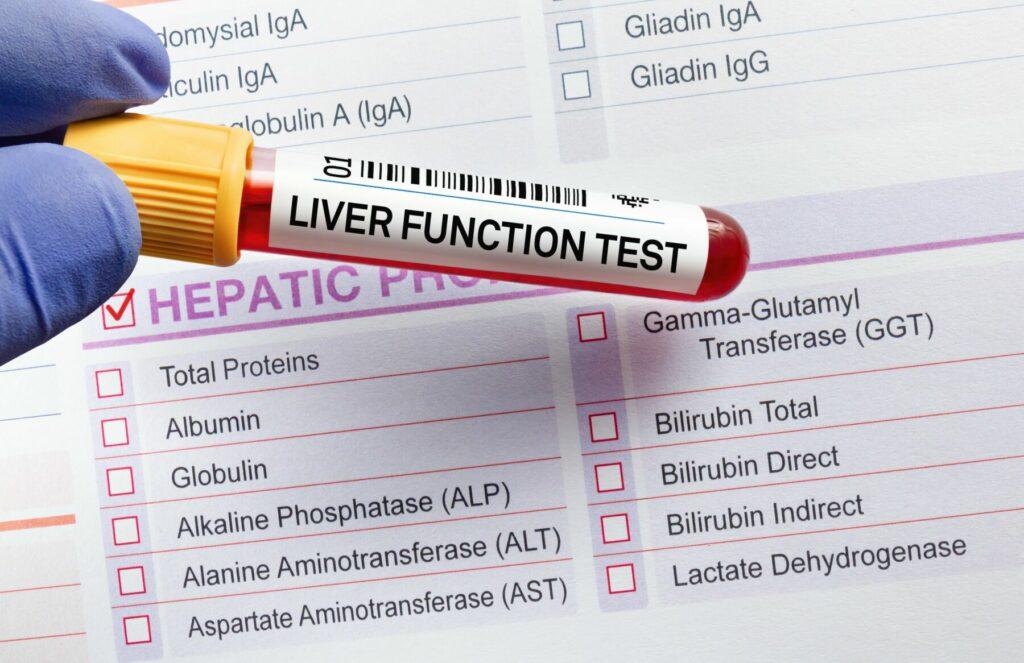What Are Liver Function Tests (LFTs)?
Liver Function Tests (LFTs) are a set of blood tests that help evaluate how well your liver is working. These tests measure levels of enzymes, proteins, and substances produced or processed by the liver. Whether you're experiencing symptoms or just want a health check, LFTs are key to understanding your liver’s condition.
Why the Liver Matters for Your Health
Think of your liver as your body’s chemical factory. It processes nutrients, detoxifies harmful substances, produces bile for digestion, and stores vital energy. Without a healthy liver, your body can’t function properly—so regular checkups matter.
Purpose of Liver Function Tests
LFTs can detect damage, inflammation, infections, or other liver disorders before you even feel symptoms. They're commonly used to:
- Diagnose liver diseases
- Monitor chronic conditions
- Evaluate side effects of medications
- Track progress of treatment
Types of Liver Function Tests
ALT (Alanine Transaminase)
This enzyme is mainly found in the liver. Elevated ALT levels can signal liver damage or inflammation.
AST (Aspartate Transaminase)
Found in both the liver and heart, high AST levels may indicate liver injury but must be considered alongside ALT.
ALP (Alkaline Phosphatase)
This enzyme relates to the bile ducts. Higher ALP levels may mean a bile blockage or bone condition.
Bilirubin Test
Bilirubin is a yellow pigment from red blood cell breakdown. If it builds up in the body, it can cause jaundice.
Albumin and Total Protein
These proteins are made by the liver. Low levels may point to poor liver function or other conditions like malnutrition.
Who Should Get an LFT Done?
People with Hepatitis
Anyone diagnosed with hepatitis A, B, or C should get regular LFTs to monitor liver health.
Individuals with Alcohol Use Disorders
Excessive alcohol can inflame the liver and lead to cirrhosis—LFTs help assess the damage.
Those Taking Liver-Impacting Medications
Certain drugs, especially painkillers, antibiotics, and anti-tuberculosis meds, can stress the liver and need close monitoring.
Common Signs You May Need an LFT
If you’re experiencing fatigue, loss of appetite, abdominal pain (especially on the right side), dark urine, pale stools, or yellowing of the skin/eyes, you should consult your doctor for an LFT.
How LFTs Are Performed
The test is simple. A healthcare professional draws a blood sample from a vein in your arm. The process takes only a few minutes, and results are usually ready within a day or two.
What to Expect Before and During the Test
No fasting is required for most LFTs, but your doctor might advise it depending on what else you're being tested for. Wear loose sleeves and stay hydrated to make the blood draw easier.
Understanding Your LFT Results
Normal Ranges
- ALT: 7–56 units per liter
- AST: 10–40 units per liter
- ALP: 44–147 units per liter
- Total Bilirubin: 0.1–1.2 mg/dL
- Albumin: 3.5–5.0 g/dL
What High or Low Values May Indicate
Elevated levels could mean liver inflammation, hepatitis, cirrhosis, or bile duct obstruction. Low protein levels might point to liver dysfunction or chronic disease.
Conditions Detected Through LFT
Hepatitis
Viral infections damage liver cells, often detected by high ALT and AST.
Fatty Liver Disease
This is caused by fat buildup in the liver—common in people with obesity or diabetes.
Cirrhosis
Chronic damage leads to scarring, reducing liver function and leading to life-threatening complications.
Liver Cancer
Persistent abnormal LFT results, especially in patients with a history of hepatitis or cirrhosis, could suggest liver tumors.
Lifestyle Factors That Influence Liver Health
- Excessive alcohol
- Unhealthy diet
- Lack of exercise
- Smoking
- Exposure to toxins
All these habits contribute to liver stress and increase the chances of abnormal LFTs.
Tips to Maintain a Healthy Liver
- Eat a balanced diet with plenty of fiber and antioxidants
- Avoid alcohol or drink in moderation
- Exercise regularly
- Avoid unnecessary medications
- Get vaccinated for hepatitis A and B
Role of Islamabad Diagnostic Center (IDC Lab) in LFT Testing
IDC Lab is a leading name in diagnostics across Pakistan. Known for their accurate and timely LFT services, Islamabad Diagnostic Center uses modern testing equipment and experienced staff to ensure you get reliable liver health insights quickly.
When to Repeat an LFT?
If your LFT comes back abnormal, your doctor may suggest repeating it in a few weeks or months, depending on the underlying cause or treatment response. Chronic patients may require ongoing monitoring every few months.
Final Thoughts on Liver Function Testing
Your liver works 24/7 to keep your body running—don’t take it for granted. Liver Function Tests are one of the simplest ways to make sure your liver is in good shape. Thanks to trusted labs like Islamabad Diagnostic Center (IDC Lab), you can monitor your liver health with confidence and convenience. Regular LFTs can help detect problems early, allowing for timely treatment and better long-term health.
FAQs
- Is fasting needed before a Liver Function Test?
Not always. But if your doctor is ordering additional tests, they might ask you to fast for 8–12 hours. - Can medications affect my LFT results?
Yes. Many medications can impact liver enzymes. Always inform your doctor about any medicine or supplement you take. - Are LFTs painful?
Not at all. The test involves a simple blood draw which only takes a few minutes. - How do I know if my liver is failing?
Symptoms like confusion, swelling in the abdomen, or extreme fatigue may suggest liver failure. LFTs help confirm this. - Where can I get reliable LFTs in Pakistan?
You can trust Islamabad Diagnostic Center (IDC Lab) for professional and reliable Liver Function Tests.

